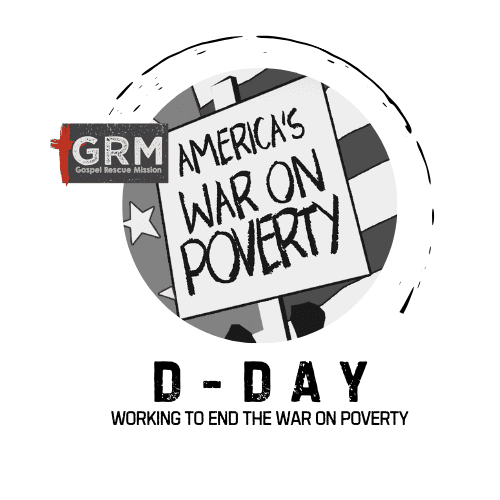If we are going to actually win this war on poverty we need to start with listening. As you are in conversation seek clues into their passions and hopes. Ask about moments in their life where everything went beautifully. Investigate the possibilities with them. Too often we encourage them to settle for the minimum. We live with an attitude of “beggars can’t be choosers.”
Many are more than happy to donate old clothing with stains and unintentional rips. We tell ourselves that those with no clothing should appreciate having something. Many will be thankful. But will the clothing we give them elevate them. In Matthew 25 Jesus seems to indicate that when you do something to the least of these that you are doing it to Him. So before you make your donation ask, “Would I give this to Jesus?”
Grandfather’s old wool suit that was very fashionable when he returned from World War II may not help someone get a job. Grandmother’s undergarments will not empower a young lady to feel cherished by our community.
We think the same with food or furniture or whatever we are ready to discard. I challenge you to ask the same question, “Would I give this to Jesus?” There is nothing wrong with sharing used items with folks. That is actually very good stewardship. However, much of our giving to those in poverty is more of a dumping of stuff that we feel guilty about taking to the dump. Our giving to those in poverty must be with the angle of, how can I actually improve this person’s life?
Community is part of the process of healing. Imagine the person that you are sharing with going to reunite with their family or applying for a job. Will your donation help propel them forward? I have a few questions that I routinely ask as I am preparing to help someone. First, what is in their eternal best interest? Second will my help empower them to flourish as God defines flourishing? Thirdly, what is my motive?
When we are talking about a long term solution to poverty we must recognize that poverty is not primarily about material poverty. What is really lacking is relationship. The material items need to somehow be connected to building community with these men and women who are typically seen as outcasts.
All those who were in distress or in debt or discontented gathered around him, and he became their commander. About four hundred men were with him. 1 Samuel 22:2
These men that gathered around David were outcasts. In the days of Jesus, lepers were outcasts. Our goal is to build relationships with these men and women so that they can be restored to our community. By the way these men and women mentioned in 1 Samuel ultimately become David’s mighty men. We can use more of those in our community.


